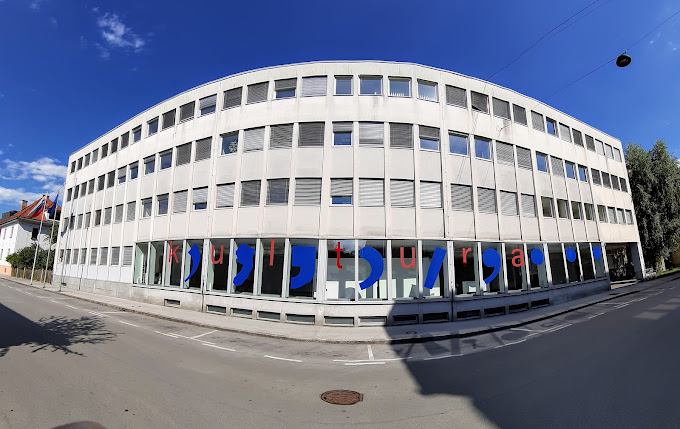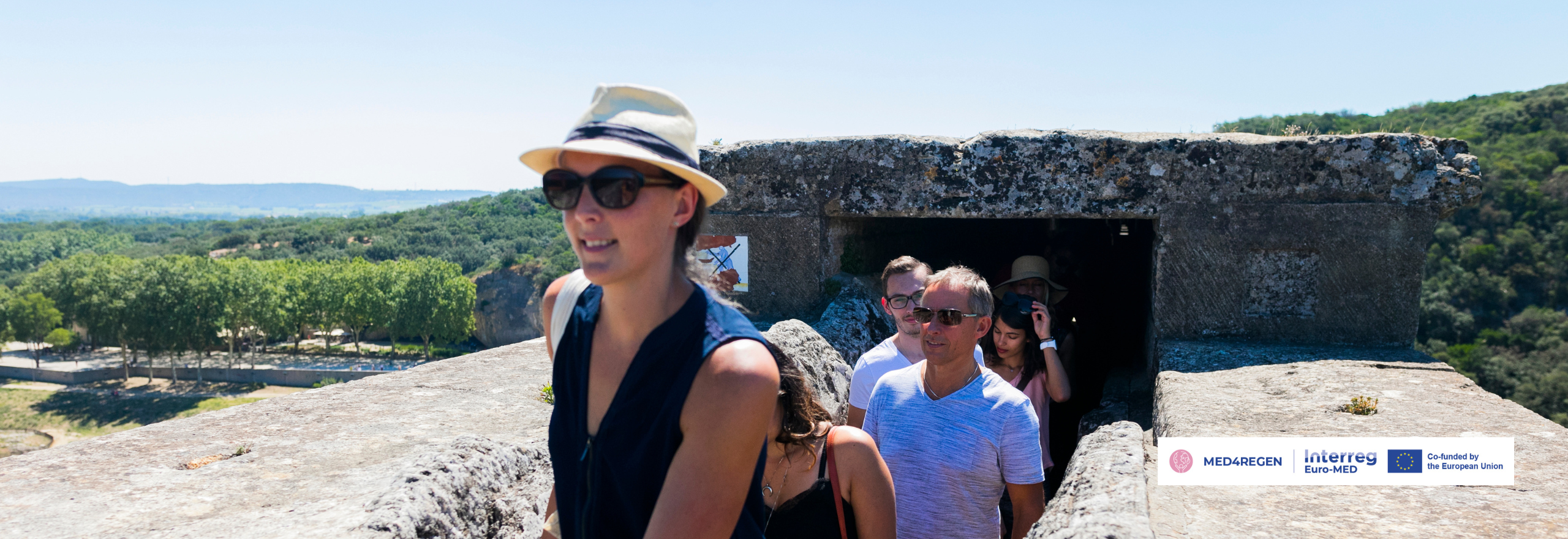
Our Story
Tourism at a Crossroads in the Mediterranean
The Mediterranean region is one of the world’s top tourist destinations, but faces growing challenges from climate change, environmental risks, and social pressures. To remain attractive and resilient, it needs to move beyond traditional tourism models and embrace sustainable, regenerative practices. MED4REGEN supports this transition by anchoring sustainability values across the tourism ecosystem, aligning with the EU’s Greener MED priorities for climate adaptation and cultural change.
Limited Tools and Collaboration
Tourism in the Mediterranean often lacks shared tools and strategies to reduce environmental impacts and involve local communities. Collaboration between cultural institutions and tourism businesses is limited, making it harder to embed sustainability at scale. MED4REGEN tackles these challenges by fostering cross-border cooperation and building shared capacity for change.
From Extractive to Regenerative Tourism
The project responds to the need for a cultural shift in tourism—transforming it from an extractive model into one that actively regenerates local environments and communities. It aims to unlock the potential of museums and heritage sites as hubs for learning, participation, and sustainable practices, helping both residents and visitors embrace climate-friendly, community-driven tourism.
Co-Designed and Tested Across Eight Countries
MED4REGEN brings together partners from eight countries to co-design and test regenerative tourism solutions. The project develops a shared MED4REGEN Strategy and five Action Plans tailored to local contexts. Sixteen concrete solutions will be piloted in museums and cultural sites, supported by training programs, living labs, and the creation of a practical toolbox and online platform to share methods and results.
Lasting Benefits for Communities and the Environment
By the end of the project, MED4REGEN will strengthen cooperation among 48 organizations across the Mediterranean. It will deliver practical tools, tested solutions, and capacity-building to help communities, cultural institutions, SMEs, and policymakers embrace regenerative tourism models. The ultimate goal is a more resilient, inclusive, and sustainable Mediterranean tourism sector that generates lasting benefits for people, culture, and the environment.
Veneto region – Italy
Veneto Region Culture Department is in charge of implementing the regional policy in the field of cultural heritage, cultural activities, cultural industries and sport.
At the same time it is in charge of planning and implementing the European Regional Development Fund Regional Programme for the cultural sector and it has a long experience in European Projects management, especially in European Territorial Cooperation.
The Department counts about 60 employees, with a dedicated Office in charge of European and International projects implementation.
The Culture Department is currently involved in 2 Interreg Europe and in 1 Italy-Croatia approved projects and is also on hold for the outcomes of other European calls for projects.
During the previous programming period, the Culture Department was involved in managing various projects dedicated to different aspects of the cultural system, ranging from enterprises to archaeology, from audiovisual to museums.
Moreover Veneto Region is one of the founding partners of Via Querinissima International Association, which is involved as an Associated Partner in MED4REGEN project. All regional functions align with the project focus on leveraging cultural heritage for social and economic development through regenerative tourism.
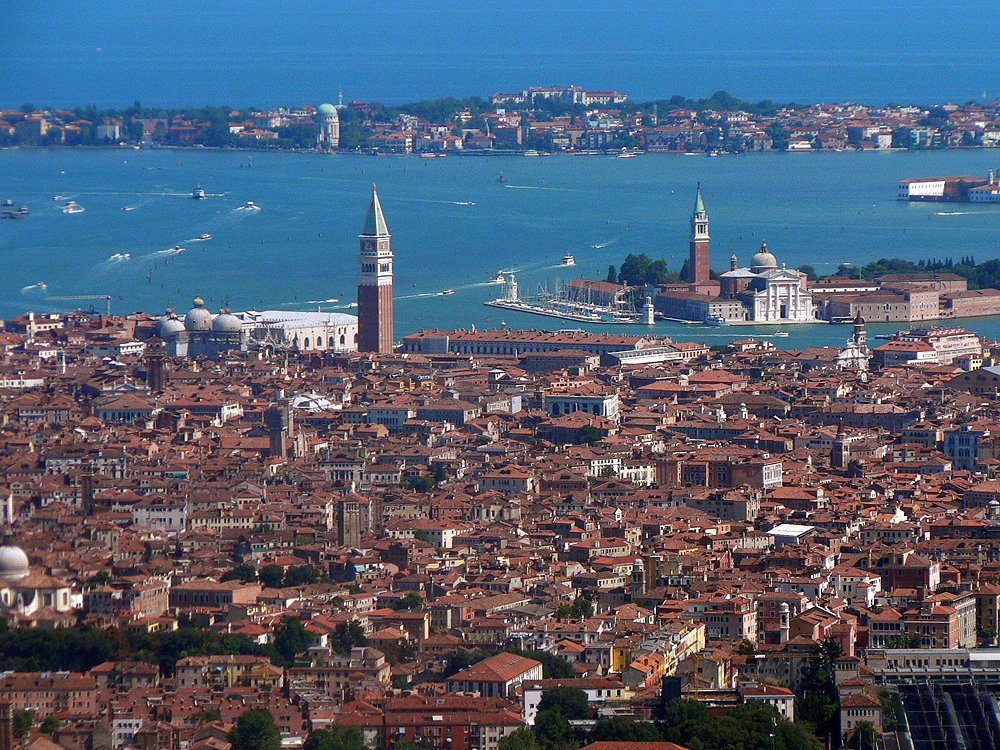
The Via Querinissima International Cultural Association was founded in 2022 to promote and enhance the cultural itinerary inspired by Pietro Querini’s journey. Its mission is to foster intercultural dialogue, sustainable tourism, and the shared European heritage that connects North and South through history, landscapes, and traditions.
Today, the Association brings together about 30 members from seven countries: Italy, Norway, Sweden, Switzerland, Greece, Spain, the Vatican City and the United Kingdom, including cultural institutions, universities, municipalities, tourism organisations, and local communities.
The itinerary aims at enhancing both the tangible and intangible cultural heritage of the territories it crosses, placing local communities and their traditions at the heart of its mission.
Through practices of sustainable and regenerative tourism, Via Querinissima promotes respect for the environment, active community engagement, and the spread of a shared European cultural awareness.
Via Querinissima – Associated Partner
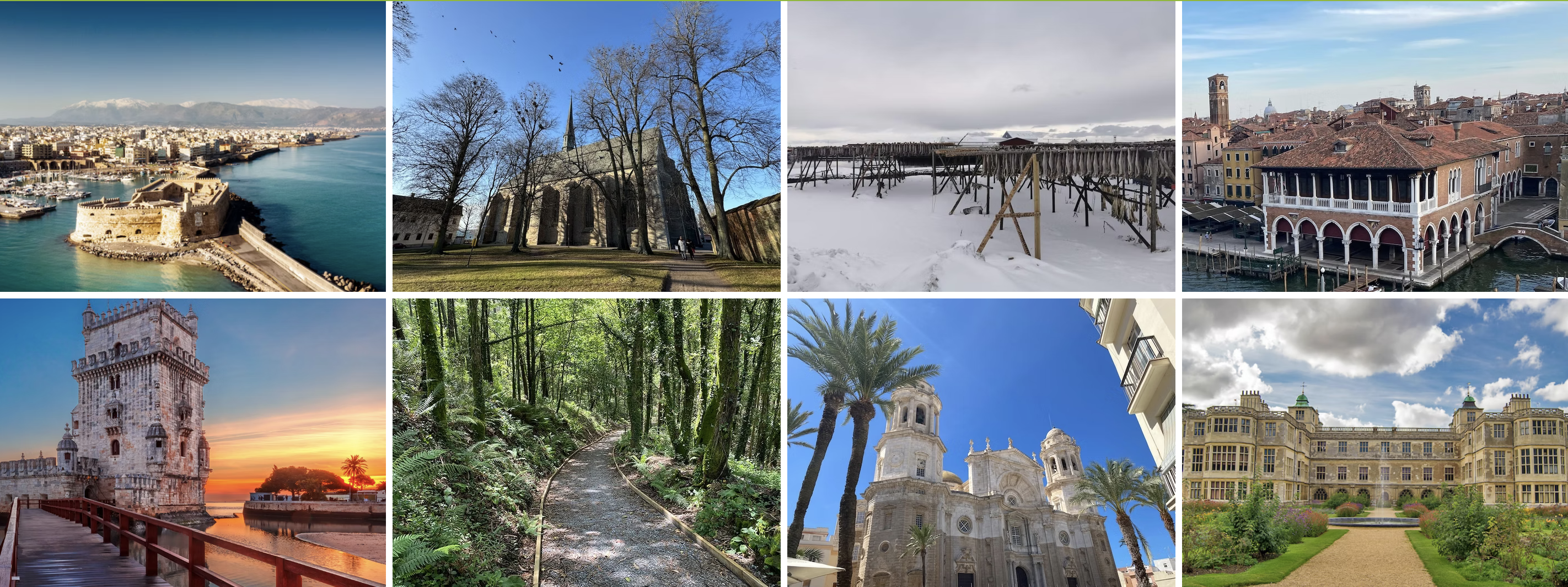
Università Iuav di Venezia – Italy
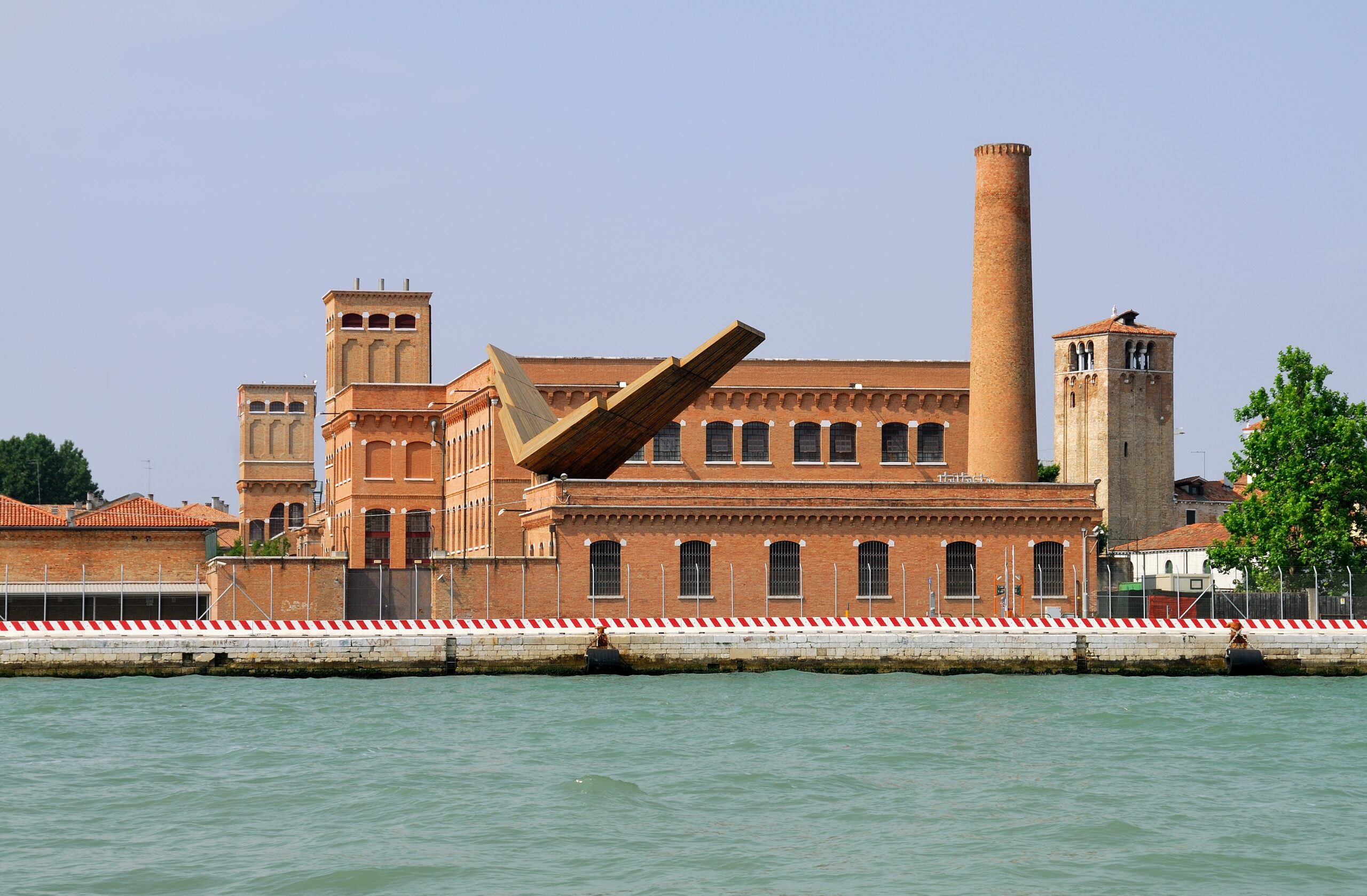
Founded in 1926, Università Iuav di Venezia is Italy’s boutique public university specializing in architecture and design.
Located in Venice, it is embedded in the city’s cultural ecosystem, working closely with civic museums and the Venice Biennale.
Iuav’s teaching model fuses humanities scholarship with hands-on design studios led by architects, artists and designers.
Approximately 4,600 students and 550 faculty explore product, visual and interior design with a focus on environmental, social and economic sustainability.
Research spans creative manufacturing, cultural innovation and regenerative urban planning, positioning Venice as a living lab for new sustainability models.
The Design for Territories unit builds tools and methods for place-based regenerative action and strong stakeholder collaboration.
Projects range from empowering museum networks in peripheral regions to helping Venice’s civic museums cope with overtourism.
This design-driven expertise in territorial regeneration makes Iuav a core partner for the MED4REGEN programme.

M9 museum – Associated Partner
M9 museum is located in Mestre, the mainland area of Venice and it is the pivot of new vision for the city. For the first time, a museum tells the story of the 20th century through the small and large transformations: from everyday life to major social, economic, environmental and cultural changes. The location of the museum, a secondary center far away from the historical city, and the different communities that participate to the cultural events offers a good testing ground for the tools and the pilot actions of MED4REGEN.
Promalaga – SPAIN
Promálaga is a municipal company owned by the City Hall of Málaga, whose main mission is to foster the city’s sustainable economic development by supporting entrepreneurship, innovation, and investment attraction. It manages a network of business incubators across different districts, including dedicated spaces for the creative and cultural industries, where it offers facilities, advisory services, and tailored support to entrepreneurs and small businesses. Additionally, it promotes training programs, mentoring, and business development services to facilitate the creation and consolidation of new ventures.
Moreover, Promálaga actively participates in European projects and international cooperation networks, aiming to promote urban innovation, digital transformation, and the economic and social regeneration of the city. Its work aligns with the municipal strategy to position Málaga as a leading hub for entrepreneurship, technology, and sustainability, contributing to the competitiveness of the local business ecosystem—including the cultural sector—and to the creation of quality employment.
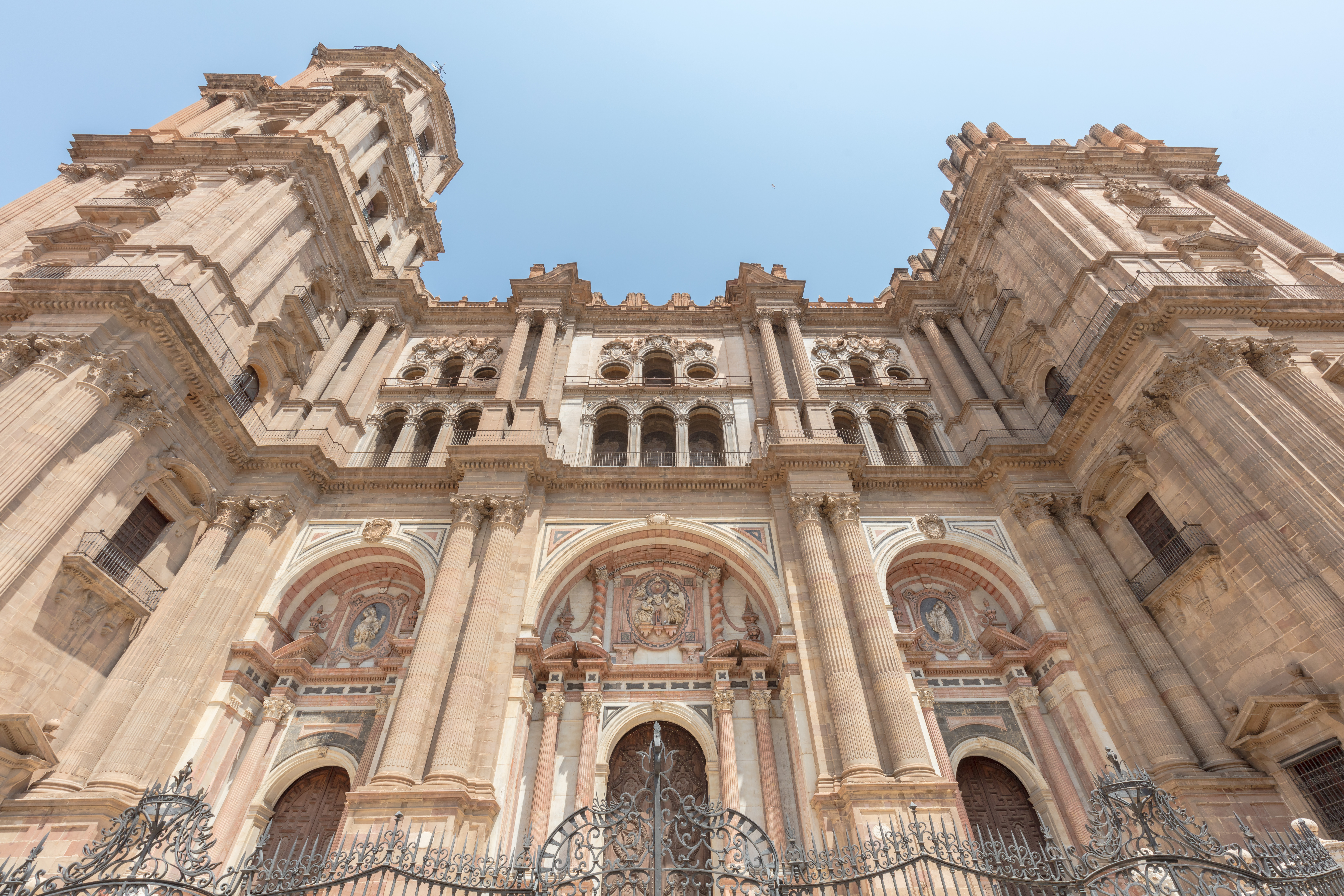
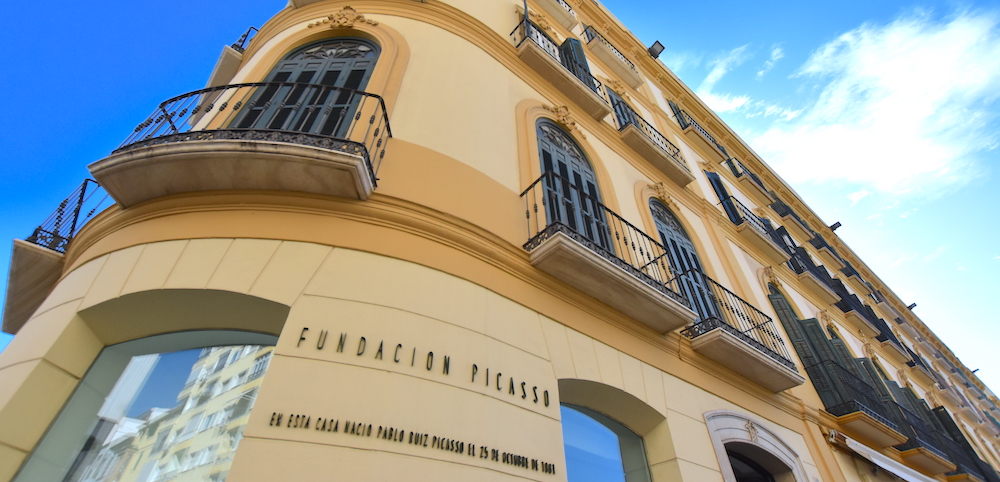
Agencia Pública para la Gestión de la Casa Natal de Pablo Ruiz Picasso y otros Equipamientos Museísticos y Culturales – Associated Partner
The Public Agency for the Management of the Birthplace of Pablo Ruiz Picasso and Other Museum and Cultural Facilities is a body under the Málaga City Hall responsible for managing and promoting key cultural spaces in the city, such as Picasso’s Birthplace Museum, the Centre Pompidou Málaga, the Russian Museum Collection, and the Documentation and Library Center, among others. Its main goal is to preserve, disseminate, and enhance the city’s artistic, historical, and documentary heritage, while expanding access to culture and enriching Málaga’s museum and exhibition offerings.
In addition to the operational management of these institutions, the Agency organizes cultural, educational, and outreach activities that encourage citizen participation and contribute to the cultural development of both locals and visitors. It also collaborates on initiatives aimed at strengthening Málaga’s international cultural profile and plays a key role in the strategic planning of the city’s cultural policies, helping to position Málaga as a leading destination in the museum sector and in the promotion of contemporary artistic creation.
The Region of Epirus – GREECE
The Region of Epirus is one of Greece’s 13 elected regional authorities, charged with delivering national development policy at the local level and steering sustainable growth. Nestled between the Pindus Mountains and the Ionian Sea in north-west Greece, it manages strategic planning, environmental stewardship, and support for entrepreneurship, agriculture and innovation, while building trans-regional partnerships. Its dramatic mountains, pristine coastline and rich biodiversity underpin a thriving nature-based tourism offer. A seasoned EU collaborator, Epirus has led numerous INTERREG and other cross-border projects that strengthen regional capacity and foster innovation.
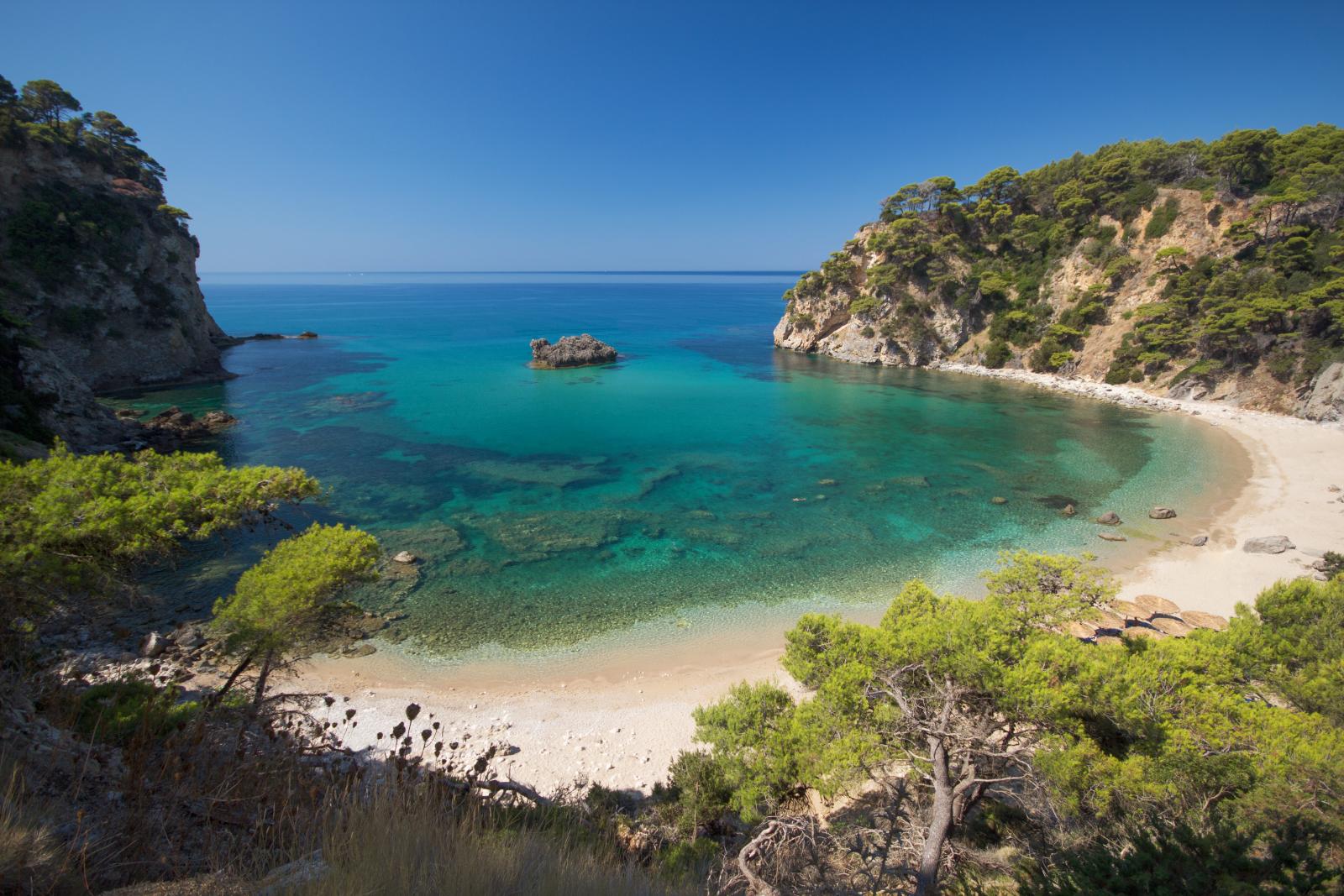
The Theodoros Papagiannis Museum of Contemporary Art – ASSOCIATED PARTNER
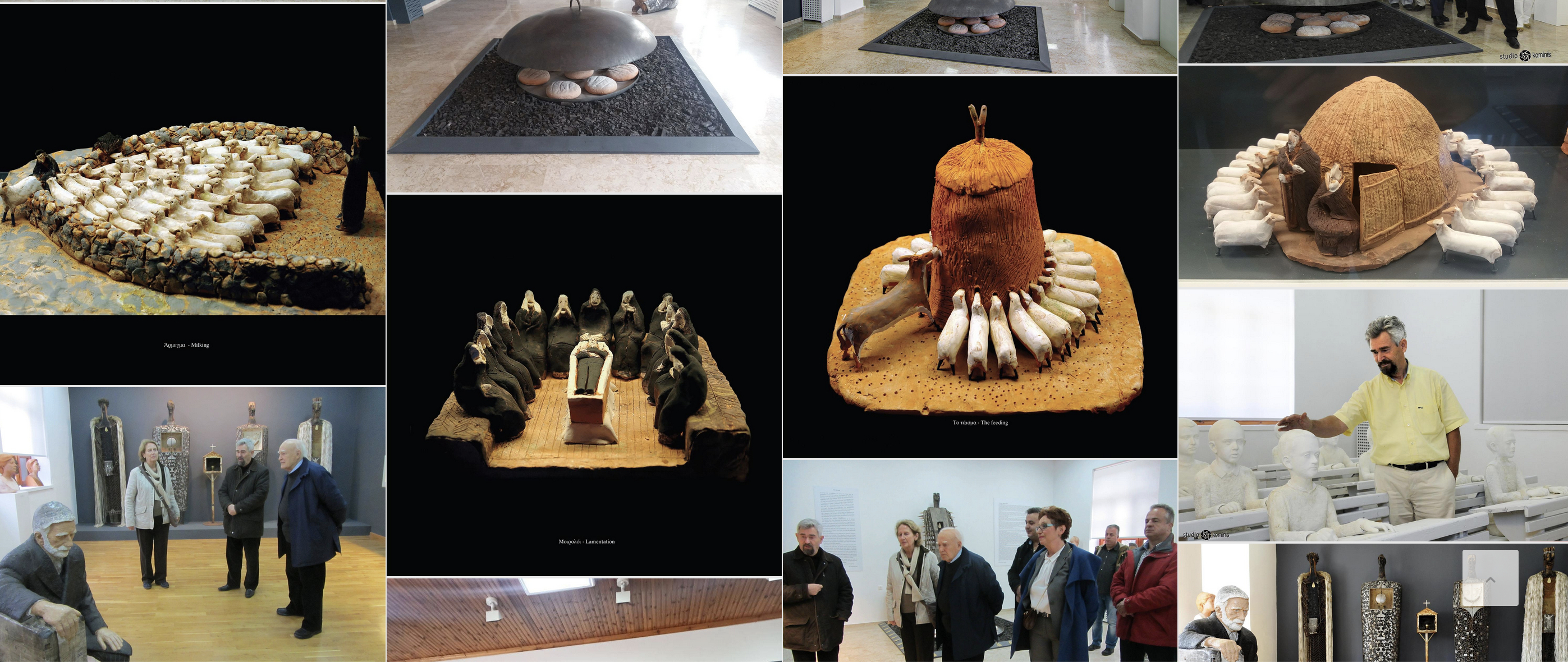
The Theodoros Papagiannis Museum of Contemporary Art housed in a restored stone school in Elliniko (North Tzoumerka), combines indoor galleries with a seven-acre sculpture park. Its 300+ works—sculptures, drawings, medals, coins and portraits—center on environmental stewardship, recycling and themes of learning, bread and charity. Each summer, Greek and international artists create new pieces during public sculpture symposiums, complemented by theatre, music, readings and film events. The museum is open daily 09:30–15:00 and offers self-guided audio tours in Greek, English, German and Hebrew.
The university of Sarajevo – Bosnia and Herzegovina
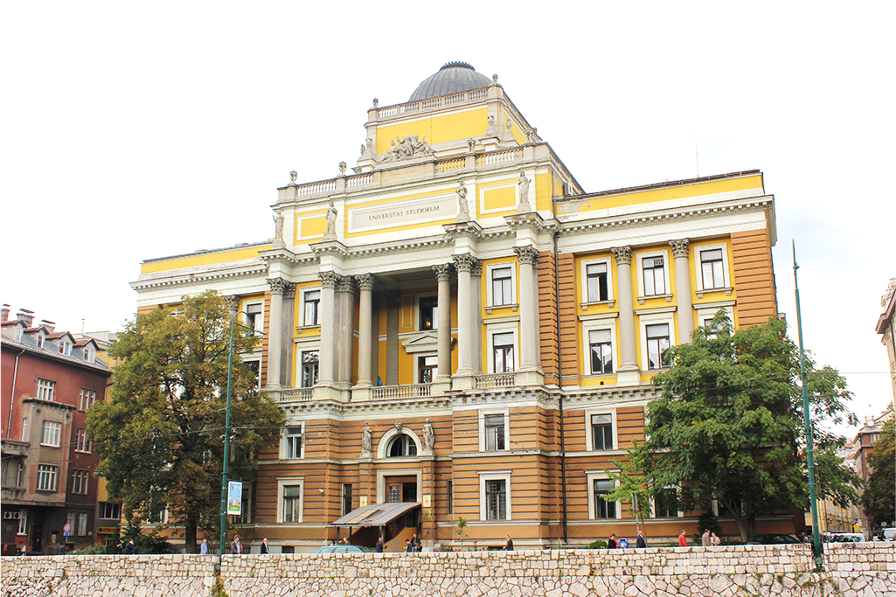
The city museums of Sarajevo – ASSOCIATED PARTNER
The City Museums of Sarajevo represent a network of cultural-historical institutions preserving the city’s identity and memory. Through its four departments – Valter Defends Sarajevo, the Olympic Museum, the Sarajevo Memorial (dedicated to the children killed during the siege), and the Ars Aevi Museum of Contemporary Art – the institution offers a comprehensive insight into Sarajevo’s past, wartime suffering, and modern creativity. Located at authentic sites, these museums provide visitors with emotionally powerful and educational experiences.
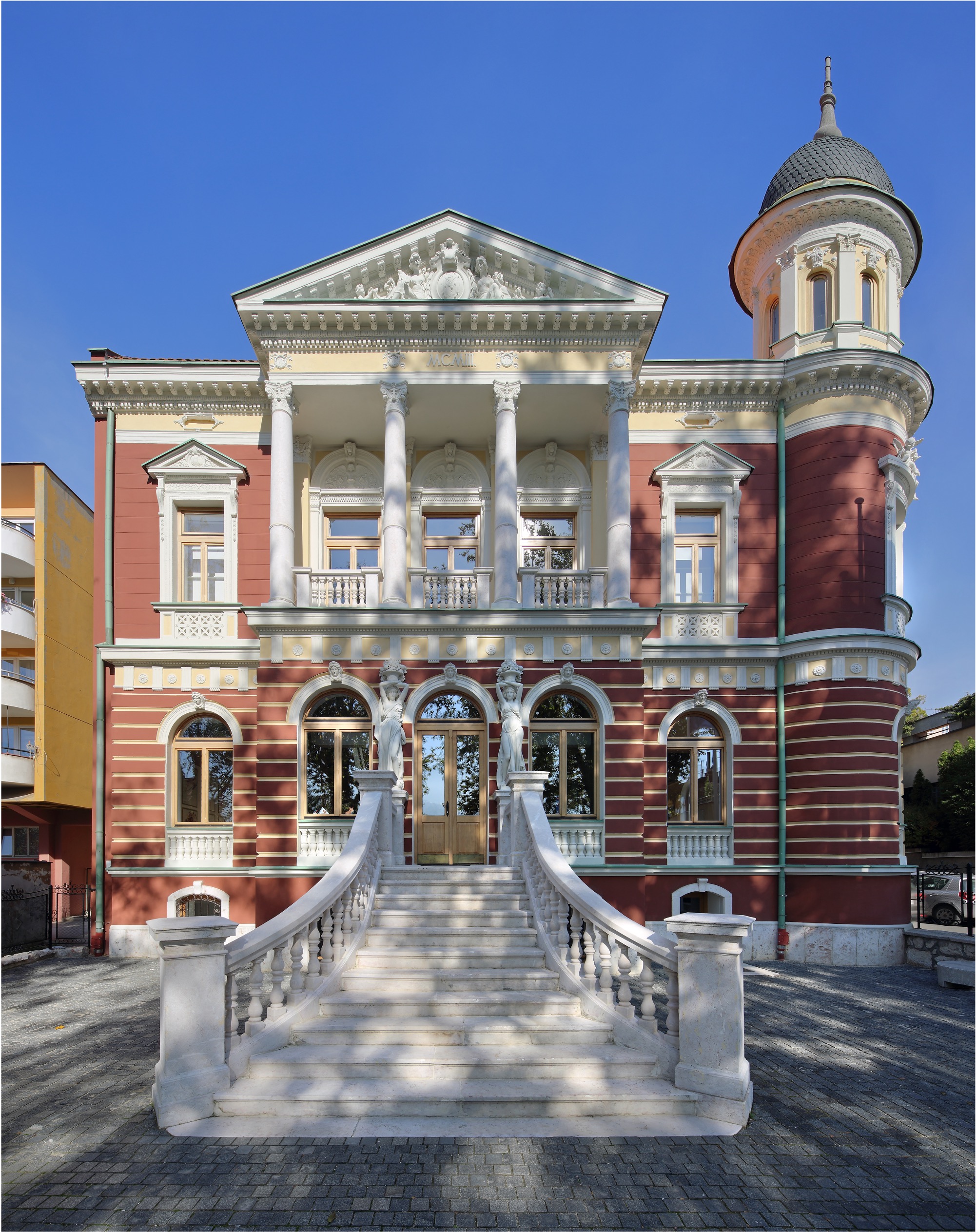
Open tourisme LAB – FRANCE
Open Tourisme Lab (OTL) is a tourism innovation agency with 3 pillars:
1) Innovation strategy consultancy-Advising tourism organisations on the development of their innovation strategy and on the challenges of transforming their model in line with sustainable and digital change
2) Open Innovation-Supporting SME as part of ideation phases, incubation and acceleration programmes, using design and collaborative methods
3) Innovation content (Events & media)-Revealing talents and pioneers who are exploring and designing new innovation approach for climate change.
OTL has launched a new program called Tourism Tech For Good (supported by Feder grant), a do-tank action of tourism game changers. Thanks to open innovation approach , OTL supports tourism organisation to meet their challenges and design new impact solutions. In April 2024, OTL organised an innovathon on 3 themes: water resource management, waste management and low-carbon mobility. Heritage sites such as the Pont du Gard put forward their challenges.
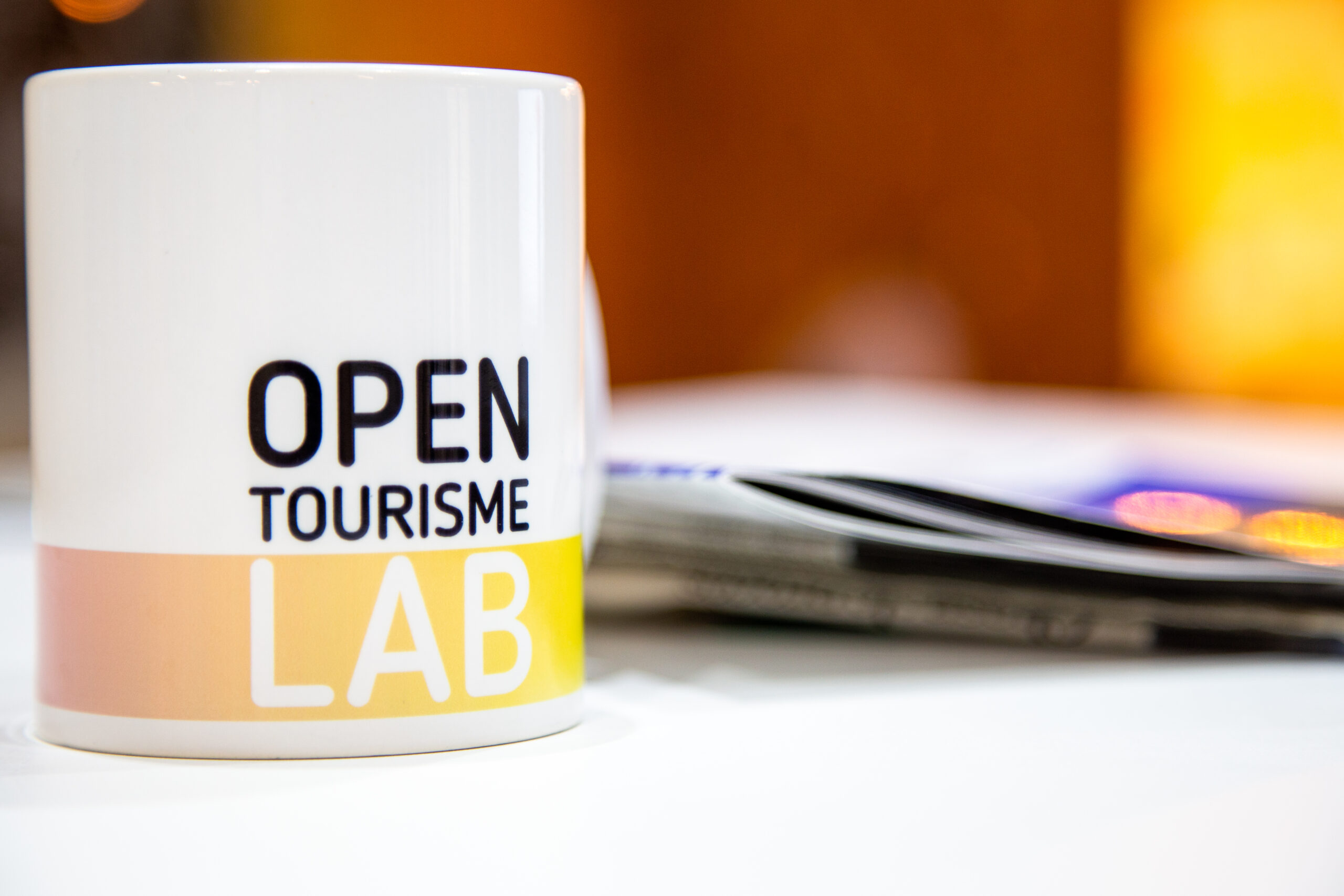
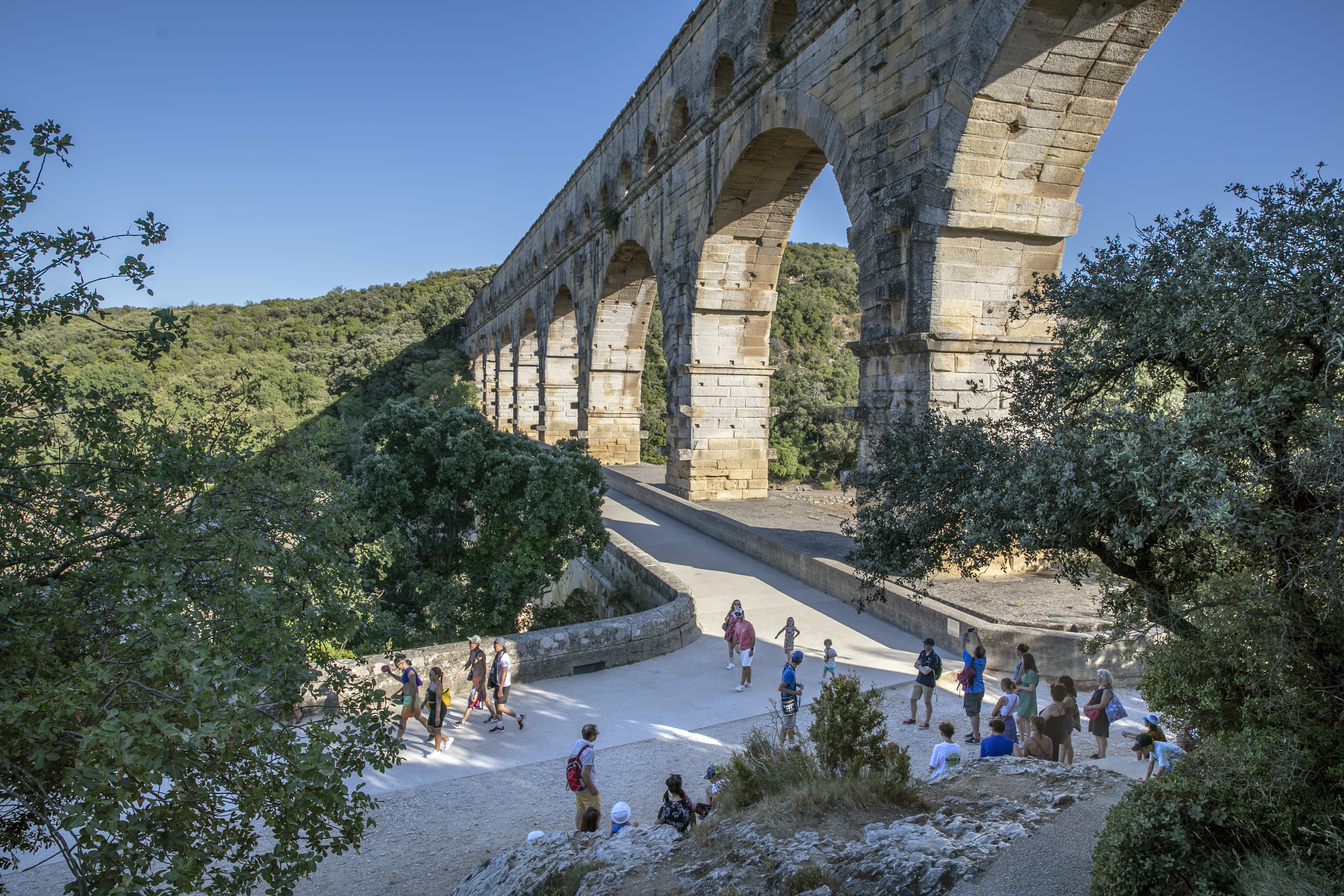
Pont du Gard
Pont du Gard is the highest Roman aqueduct bridge in the world, protected by UNESCO (in WH List since 1985) and other programmes (Natura 2000). The role of Advisory is crucial: PdG, in coordination with PP8, is involved in identifying local challenges in WP1, but especially in the pilot actions of WP2. Solutions to be tested can in fact innovatively leverage the know-how on sustainability that intrinsically characterises PdG. It offers spaces for reception and discovery about: Roman civilization and its relationship with water, techniques of construction, agriculture and Mediterranean landscapes. Solutions will be in line with the UNESCO management plan to move towards new sustainable practices: in welcoming visitors (estimated at 1 million per year), through energy sobriety and in transmission of values (End-user). PdG will play a supporting role throughout the whole project, by engaging local stakeholders through its own relational channels (Observer/supporter).
DALMATIA – CROATIA
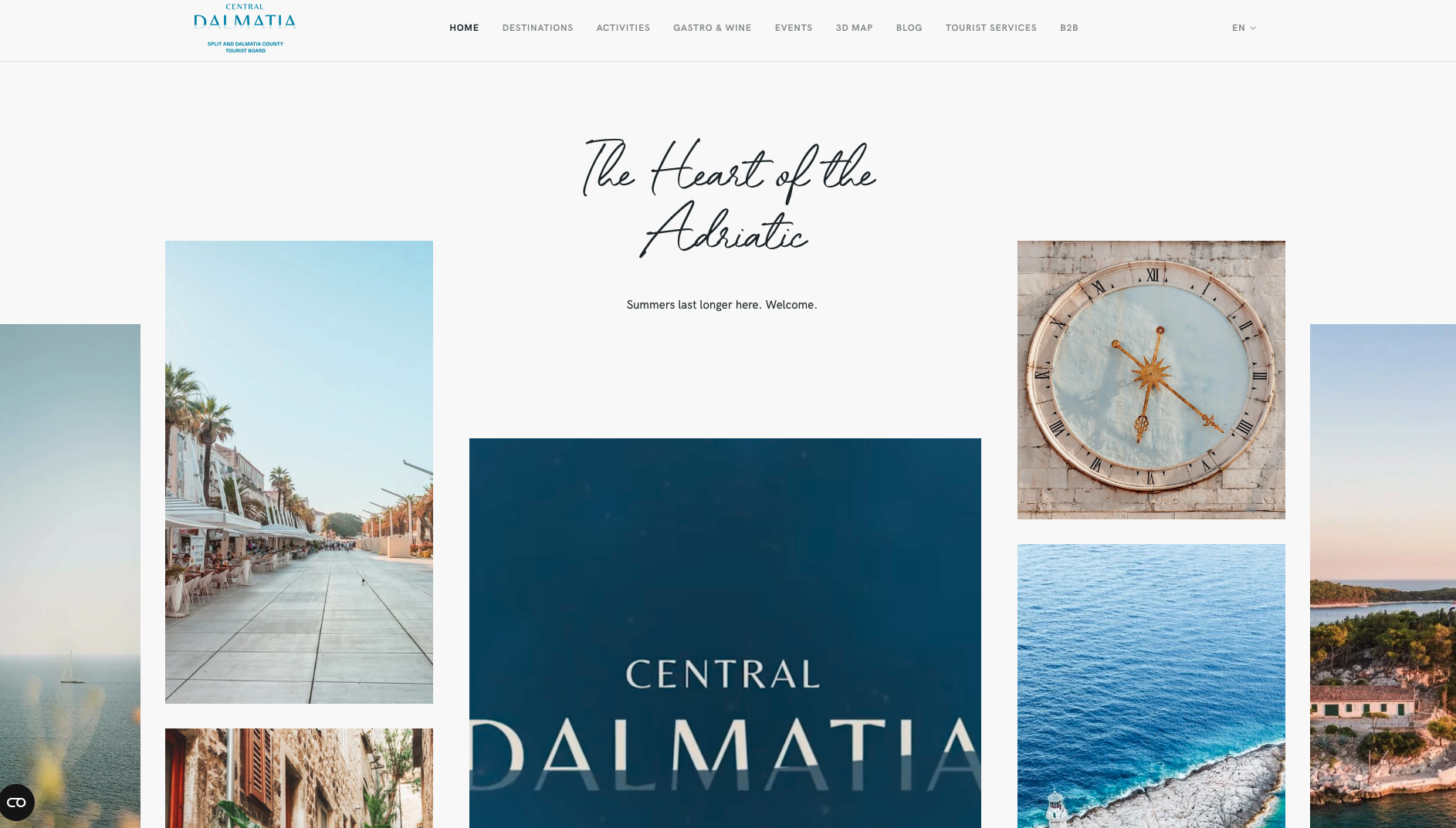
The Tourist Board of Split-Dalmatia County is an organization that operates according to the principle of destination management, and was founded to promote and develop tourism in the Republic of Croatia and the economic interests of legal and natural persons who provide hospitality and tourism services or perform other activity directly related to tourism in such a way that they manage the destination at the level of the Split-Dalmatia County. The Board’s tasks as a regional management organization are as follows: research and strategic planning, tourism product development, communication and advertising, destination management and administrative tasks. The Board has a large experience in policy making and relationship with local governance processes.
The Alka Knights Society – Associated Partner
The Alka Knights Society (est. 1715) is an
association of citizens that supports the tradition of
the chivalric Alka Tournement of Sinj, UNESCO
intangible heritage since 2010. In WP1 it is involved
in local/transnational activities in order to transfer
knowledge on local tourism challenges. In addition,
the experience as an “heritage practitioner
community” (Unesco 2003) born with and for an
intangible cultural heritage, and expertise on daily
used community-based approaches, will support the
design of hyperlocal framework/tools. Crucial will be
the collaboration with PP6 to develop a design
process that can capitalize on the local challenges
(Advisory). Capacity building will provide it with
skills for hyperlocal regenerative tourism solutions
to be tested (End users/receivers/Final
beneficiaries). It will play a supporting role
throughout the whole project, by engaging local
stakeholders such as other associations, SMEs
through its own channels (Observer/supporter).
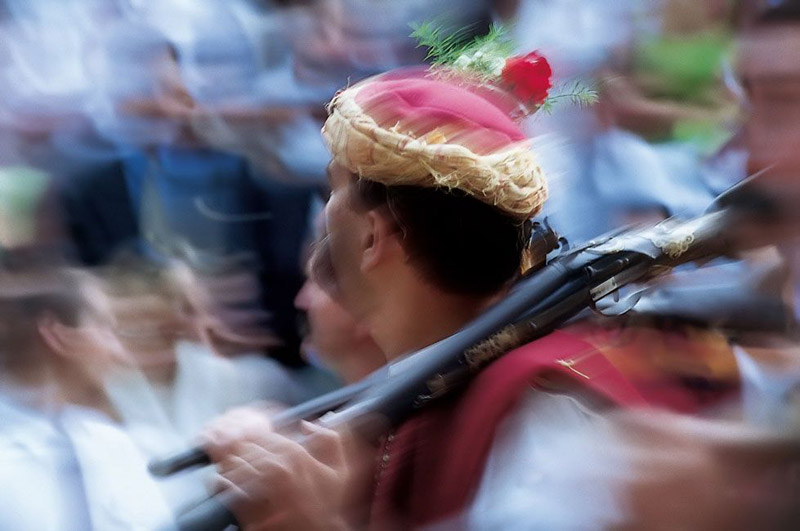
The Architectural Museum Ljubljana (MAO) – SLOVENIA
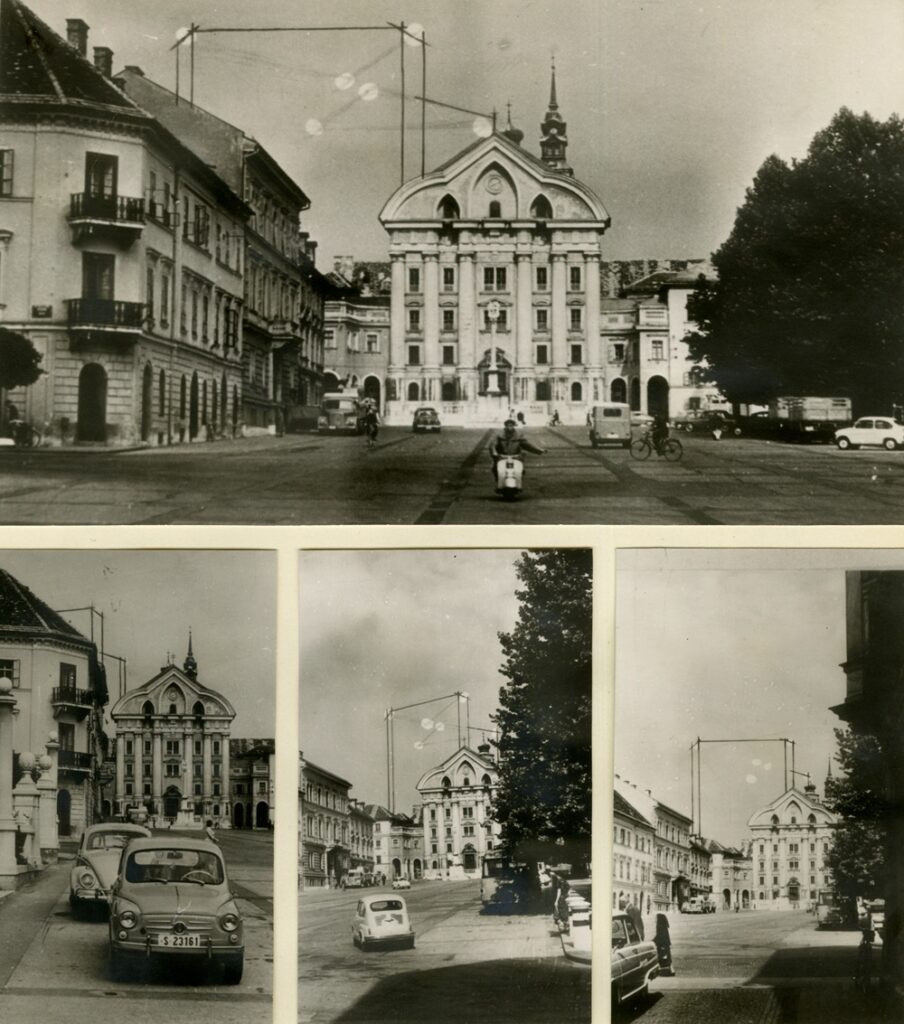
Founded in 1972 as the Architectural Museum Ljubljana, thus making it one of Europe’s oldest museums of architecture and design, MAO is today an example of the transformation of a museum into a dynamic institution with new functionalities. MAO is the caretaker and promotor of the world’s most comprehensive collection of Slovenian architectural and design heritage. MAO brings together curators, editors, and producers who take great care in collecting national heritage and designing contemporary programmes. MAO is a destination for professionals, students, and visitors interested in the principles and advantages of good architecture and design. It specifically addresses and is a source of inspiration to all those who are new to architecture, design and photography, helping them recognize the importance of preserved heritage for people’s lives, contemporary creative production, and future development. We are a national and international centre and hub for the transfer of knowledge in the fields of heritage and creativity, featuring innovative programme formats dedicated to the preservation of heritage and supporting emerging creatives.
Ministrstvo za kulturo Republike Slovenije – Associated Partner
The Slovene Ministry for Culture is the only one,
among Associated Partners, with policy relevance.
In WP1 and WP2 its expertise is crucial to focus,
from a policy perspective, on the relationship
between innovation processes for sustainability and
the functions of conservation, valorisation and
protection of cultural heritage (Advisory). It will
benefit from the main outcomes of the project and,
in particular, from the Action Plans for MED
regenerative tourism for its own cultural policy
planning and strategy work (End-user). It will also
play a supporting role throughout the whole project,
by engaging local stakeholders such as cultural
institutions and by endorsing and providing
institutional visibility to key outcomes of
MED4REGEN Project in WP3 (Observer/supporter)
